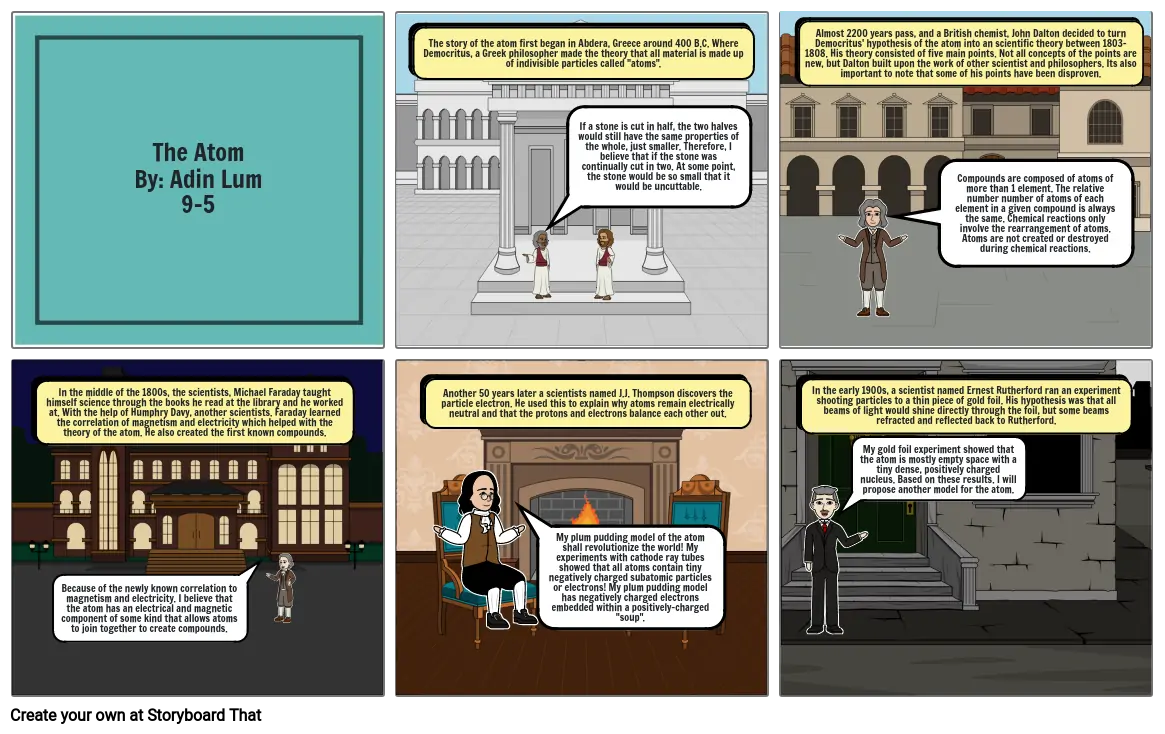adin

Storyboard Text
- The AtomBy: Adin Lum9-5
- The story of the atom first began in Abdera, Greece around 400 B.C. Where Democritus, a Greek philosopher made the theory that all material is made up of indivisible particles called "atoms".
- If a stone is cut in half, the two halves would still have the same properties of the whole, just smaller. Therefore, I believe that if the stone was continually cut in two. At some point, the stone would be so small that it would be uncuttable.
- Almost 2200 years pass, and a British chemist, John Dalton decided to turn Democritus' hypothesis of the atom into an scientific theory between 1803-1808. His theory consisted of five main points. Not all concepts of the points are new, but Dalton built upon the work of other scientist and philosophers. Its also important to note that some of his points have been disproven.
- Compounds are composed of atoms of more than 1 element. The relative number number of atoms of each element in a given compound is always the same. Chemical reactions only involve the rearrangement of atoms. Atoms are not created or destroyed during chemical reactions.
- In the middle of the 1800s, the scientists, Michael Faraday taught himself science through the books he read at the library and he worked at. With the help of Humphry Davy, another scientists. Faraday learned the correlation of magnetism and electricity which helped with the theory of the atom. He also created the first known compounds.
- Because of the newly known correlation to magnetism and electricity. I believe that the atom has an electrical and magnetic component of some kind that allows atoms to join together to create compounds.
- Another 50 years later a scientists named J.J. Thompson discovers the particle electron. He used this to explain why atoms remain electrically neutral and that the protons and electrons balance each other out.
- My plum pudding model of the atom shall revolutionize the world! My experiments with cathode ray tubes showed that all atoms contain tiny negatively charged subatomic particles or electrons! My plum pudding model has negatively charged electrons embedded within a positively-charged "soup".
- In the early 1900s, a scientist named Ernest Rutherford ran an experiment shooting particles to a thin piece of gold foil. His hypothesis was that all beams of light would shine directly through the foil, but some beams refracted and reflected back to Rutherford.
- My gold foil experiment showed that the atom is mostly empty space with a tiny dense, positively charged nucleus. Based on these results. I will propose another model for the atom.
Over 30 Million Storyboards Created

